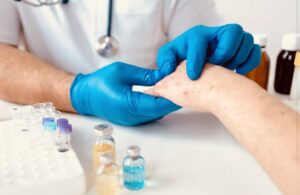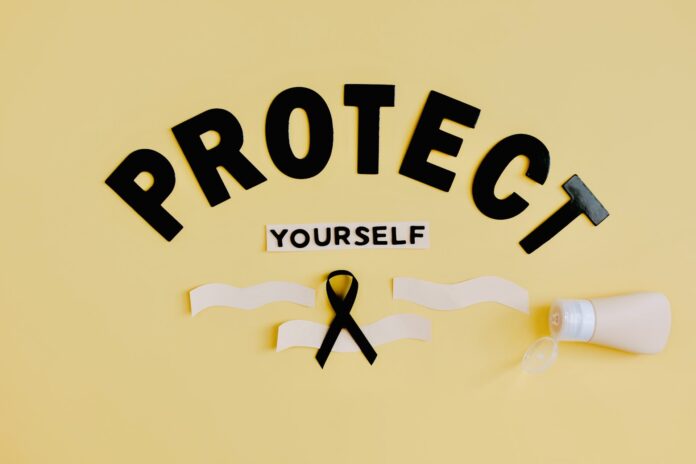Nel Regno Unito, la scabbia è riemersa, con un aumento dei casi segnalato dai medici in tutto il paese, che sono preoccupati per la grave carenza di farmaci adatti per il trattamento. La scabbia è una condizione altamente contagiosa causata dagli acari, che provoca prurito ed eruzioni cutanee che si diffondono attraverso il contatto diretto della pelle, il che significa che chiunque può contrarla e deve essere trattato tempestivamente per prevenirne la diffusione. Trovare trattamenti efficaci nel Regno Unito è diventato una sfida.
Un sondaggio condotto dalla British Association of Dermatologists e commissionato da The Guardian ha rivelato che otto dei nove rappresentanti regionali hanno segnalato un aumento dei casi di scabbia nella loro area quest’anno, mentre sette su nove hanno segnalato carenze di “permethrin” e “malathion”. Problemi nella catena di approvvigionamento e l’aumento dei costi delle materie prime hanno causato una carenza sia di permethrin che di malathion per diversi mesi. L’incapacità di trattare prontamente le persone colpite sta alimentando la diffusione della scabbia, come segnalato dai medici. Per i dermatologi intervistati da The Guardian, la situazione è diventata un incubo, con focolai che si verificano in case di riposo e alloggi universitari. Disperati, molti pazienti hanno cercato di acquistare trattamenti alternativi, spesso opzioni estremamente costose disponibili su siti web al di fuori del Regno Unito. La situazione richiede urgentemente un intervento per garantire un accesso adeguato ai trattamenti e contenere la diffusione della scabbia. Il tasso di diffusione della scabbia nel Regno Unito è stimato a 3 casi su 100.000 persone, il doppio del tasso normale per questo periodo dell’anno, ma potrebbe essere considerevolmente più alto.
Ma cos’è la scabbia?
La scabbia, nota anche come scabbia sarcoptica, è una malattia della pelle causata da un parassita microscopico noto come Sarcoptes scabiei. Questi parassiti si nutrono del tuo sangue e scavano piccoli tunnel nella tua pelle, causando prurito e irritazione intensi. La scabbia è un’infezione cutanea contagiosa che può colpire chiunque, indipendentemente dall’età, dal sesso o dallo stato socioeconomico. Questa malattia, se non trattata, può causare notevoli disagi e disturbi. Tuttavia, con una diagnosi tempestiva e un trattamento adeguato, la scabbia diventa completamente curabile. Ma come può essere prevenuta questa malattia? Per prima cosa, comprendiamo i suoi sintomi.
Sintomi – I sintomi della scabbia possono variare da persona a persona, ma i più comuni includono:
Prurito intenso – Questo è il sintomo più evidente della scabbia, spesso peggiore di notte.
Eruzioni cutanee – Potresti sviluppare piccole pustole o vescicole, spesso accompagnate da croste o noduli.
Rossore – La pelle infetta può diventare rossa e irritata.
Sensazione di formicolio – Molte persone riferiscono una sensazione di formicolio sulla pelle.
Piccoli tunnel sottili – I parassiti creano piccoli tunnel sottili sulla pelle, spesso visibili come linee grigie o rosse.
Trattamento – La buona notizia è che la scabbia è trattabile. Tuttavia, è essenziale consultare un medico per una diagnosi corretta. I trattamenti più comuni includono:
Lotions o creme scabicidi – Il medico di fiducia può prescrivere una lozione o crema da applicare su tutto il corpo per uccidere i parassiti. Questo trattamento può richiedere settimane, ma per alleviare il prurito, possono anche essere prescritti antistaminici.
Lavaggio dei tessuti – Lavare tutti i vestiti, la biancheria da letto e gli asciugamani a temperature elevate per eliminare i parassiti.
Trattamento per i contatti stretti – Anche le persone con cui hai avuto contatti stretti dovrebbero essere trattate, anche se non mostrano sintomi evidenti.
Prevenzione – La prevenzione della scabbia è possibile. Ma come? Ecco alcune importanti misure preventive:
Mantenere una buona igiene personale, compreso il lavaggio frequente delle mani e il cambio regolare della biancheria da letto.
Cercare di evitare il contatto fisico stretto con persone infette. Lavare regolarmente gli oggetti personali come spazzolini da denti e pettini.
Pulire e aspirare la casa regolarmente per rimuovere eventuali parassiti.
La scabbia può essere fastidiosa, ma con il trattamento appropriato e le adeguate misure preventive, può essere sconfitta. Se sospetti di avere la scabbia o sei stato a contatto con una persona infetta, non esitare a consultare un medico per una corretta diagnosi e trattamento. La chiave per combattere la scabbia è l’informazione e l’azione tempestiva. Ma dove è più facile contrarre questa malattia?
Paesi in via di sviluppo – La scabbia è più comune nei paesi in via di sviluppo, dove le condizioni igieniche e l’accesso ai servizi medici sono limitati.
Comunità indigene – In alcune comunità indigene, la scabbia può essere più diffusa a causa delle condizioni di vita e dell’accesso limitato alle cure mediche.
Campi profughi – In situazioni di crisi umanitaria, come i campi profughi o le situazioni di sfollamento, la scabbia può diffondersi rapidamente a causa dell’affollamento e delle scarse condizioni igieniche.
Alcune regioni tropicali – In alcune regioni tropicali e subtropicali, la scabbia può essere più comune a causa del clima caldo e umido, che può favorire la trasmissione.
Luoghi affollati – Anche in luoghi affollati come prigioni, dormitori e strutture residenziali, la scabbia può diffondersi più facilmente.
È importante notare che la scabbia può essere presente in molte altre nazioni e regioni in tutto il mondo, ma la sua prevalenza può variare notevolmente. La miglior difesa contro la scabbia è mantenere buone pratiche di igiene personale, evitare il contatto stretto con persone infette e cercare cure mediche tempestive in caso di sospetta infezione.

Di seguito trovi una guida completa alla cura della scabbia e ai farmaci più adatti per il trattamento
La scabbia è una fastidiosa infezione della pelle causata dal parassita Sarcoptes scabiei. Sebbene possa essere sgradevole, la buona notizia è che la scabbia è trattabile. Prima di iniziare qualsiasi trattamento, è fondamentale ottenere una corretta diagnosi da parte di un professionista medico. La scabbia può essere confusa con altre condizioni cutanee, quindi una visita dal medico è essenziale per una terapia adeguata. Una volta confermata la diagnosi, il medico può consigliare vari trattamenti efficaci per sconfiggere la scabbia.
I farmaci comunemente utilizzati sono i seguenti:
Permethrin: Questa lozione o crema è uno dei trattamenti più comuni ed efficaci per la scabbia. Viene applicata su tutto il corpo e lasciata in posa per un periodo specifico prima di risciacquare.
Ivermectina: Questo farmaco orale può essere prescritto per la scabbia grave o resistente. Viene somministrato sotto supervisione medica.
Benzil benzoato: Si tratta di un’alternativa topica al permethrin ed è disponibile come crema o unguento.
Crotamiton: Questo medicinale può essere utilizzato in alcuni casi, ma la sua efficacia potrebbe essere inferiore rispetto ad altri trattamenti.
Lavaggio di vestiti e oggetti personali: Durante il trattamento, è importante lavare tutti i vestiti, la biancheria da letto e gli asciugamani a temperature elevate per eliminare eventuali parassiti.
Quali sono le Misure Preventive?
La prevenzione della scabbia è importante quanto il trattamento stesso. Ecco alcune importanti misure preventive – Igiene personale – Mantenere una buona igiene personale, compreso il lavaggio frequente delle mani e la cura delle unghie – Evitare il contatto stretto – Cercare di evitare il contatto fisico stretto con persone infette, specialmente durante un’epidemia – Pulizia ambientale – Pulire e aspirare la casa regolarmente per rimuovere eventuali parassiti – Lavaggio frequente degli oggetti personali – È essenziale lavare regolarmente oggetti personali come spazzolini da denti, pettini e asciugamani.
La scabbia può essere fastidiosa, ma è completamente curabile con il trattamento appropriato e la diagnosi tempestiva. Se sospetti di avere la scabbia o hai avuto contatto con una persona infetta, consulta immediatamente un medico. Ricorda che il trattamento dovrebbe essere prescritto e supervisionato da un professionista medico. Seguendo le misure preventive e le istruzioni del tuo specialista, puoi sconfiggere la scabbia e ripristinare la salute della tua pelle.
*Le informazioni contenute in questo articolo non sono a scopo diagnostico e in nessun caso sostituiscono il parere medico. Ricordiamo che in caso di disturbi e/o malattie, è sempre necessario consultare il proprio medico di base e/o uno specialista.
Ig – @fairness_mag




